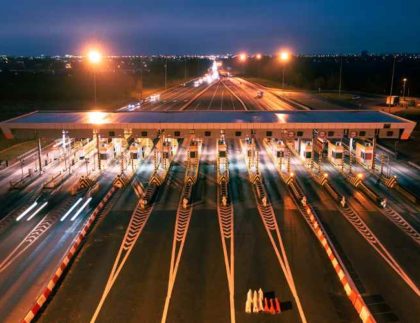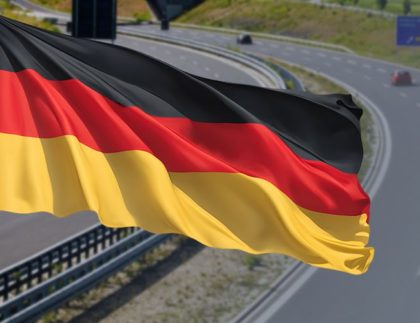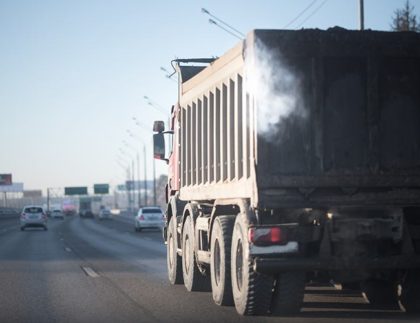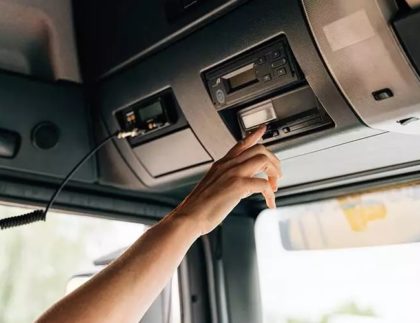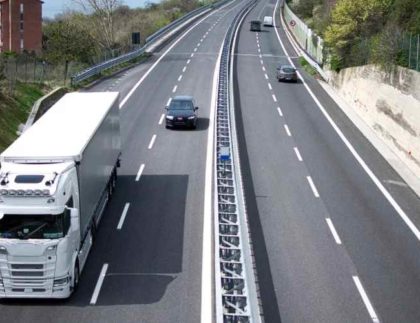

On this blog we regularly discuss the topic of road traffic rules in individual European Union countries, focusing on issues such as driving bans or speeding tickets. In today’s article we will take a look at Swiss traffic regulations. Switzerland sets high safety standards and drivers, both local and under international transport regime, should know the most important rules and fines for traffic offences.
This article discusses the Swiss traffic tickets system – its provisions and fines. See what offences may be particularly hard on your wallet. Read on!
Swiss traffic regulations
Switzerland, similarly to other countries, has an extensive system of penalties meant to discipline drivers violating the traffic code. Smaller offences and minor violations usually mean simple penalties, i.e. tickets.
However, the situation looks very different when the infraction causes material damages or poses explicit threat to human life or health. If the simplified procedure for imposing penalties is insufficient, drivers may be punished by the court. Gross violations resulting from recklessness and having a potential to bring about serious dangers may involve severe consequences, including imprisonment up to three years. Moreover, under certain circumstances the driver’s license may be revoked and the vehicle may even be confiscated.
Swiss traffic regulations
A discussion of Swiss traffic regulations must start with the speed limits that – similarly as in other countries – differ depending on the location and type of road.
In good visibility and conditions the following speed limits are in place:
- in built-up areas: maximum speed is 50 km/h,
- non-built-up areas (excluding expressways and highways): maximum speed is 80 km/h,
- on expressways: allowed speed is 100 km/h,
- on highways: maximum speed is 120 km/h.
On express ways and highways the speed limit is 100 km/h for:
- company cars (except for articulated buses and urban transport buses licensed for regular transport with approved room for standing passengers),
- heavy campers,
- light motor vehicles with a trailer, if the total weight of the trailer does not exceed 3.5 t.
Importantly, special markings or additional restrictions for specific types of vehicle supersede the general regulations. The following regulations apply regarding other speed limits:
80 km/h for:
- heavy vehicles (excluding heavy passenger cars),
- trucks with trailers,
- motor vehicles with semi-trailers,
- vehicles using spike tires.
60 km/h for:
- commercial tractors.
40 km/h while:
- towing vehicles (in certain cases the limit may be increased)
- towing an empty car carrier (in certain cases the speed limit may also be increased).
30 km/h for:
- non-registered farm and timber trailers,
- registered farm and timber trailers, unless their registration documentation allow higher speeds,
- vehicles equipped with solid rubber metal wheels.
These maximum speeds may not be exceeded even if road signs allow for higher limits.
According to the traffic regulations in Switzerland, vehicles unable to exceed 100 km/h must not use the left lane on highways having at least three lanes in one direction. In certain situations drivers must also use so-called zipper merge – if on a multi-lane road it is not possible to smoothly continue driving on a lane or the lane ends in a taper, vehicles on the closed lane should be allowed to merge into traffic in turns.
Let’s not neglect an obvious but crucial issue of undertaking on a highway – which is generally prohibited. The only exception is when the left lane jams while the right lane remains clear. In such a case, you may pass the vehicles to the left.
Difficult mountain road stretches, quite common in Switzerland, require special precautions. This applies specifically to trailers, to be secured with extra wheel wedges or temporary supports. For heavy motor vehicles, sets with trailer and freestanding trailers, wheel wedges are required even for milder slopes.
In Switzerland, special focus is put on environmental protection, which translates into requirements imposed on transport industry. In vehicles equipped with on-board system (a computer), if diagnostics show incorrect operation of equipment responsible for exhaust emissions, the owner must have the vehicle inspected and repaired within one month after the defect is signaled.
Penalties for speeding
Speeding in Switzerland involves strict penalties. Speeding tickets depend on the location and seriousness of the committed offence. The driver may also lose their driving license for serious offences. Here are the current ticket amounts in Switzerland in built-up areas, in non-built-up areas and on highways.
What are the penalties for speeding in built-up areas?
According to regulations, speeding is determined by how much the allowed speed applicable to a location and the specific type of vehicle is exceeded. The measured speed is reduced by the so-called safety reduction – which differs depending on the measuring device (which may be radar, sensor, average speed measurement as well as stationary or mobile measuring device). The reduction value is proportionately larger for higher speeds (Article 8 FEDRO).
Exceeding the allowed speed in built-up area will result in the following ticket amounts:
- 40 CHF – speed limit exceeded by 1–5 km/h,
- 120 CHF – speed limit exceeded by 6–10 km/h,
- 250 CHF – speed limit exceeded by 11–15 km/h.
What are the penalties for speeding in non-built-up area?
In Switzerland tickets for speeding in non-built-up area are as follows:
- 40 CHF – speed limit exceeded by 1–5 km/h,
- 100 CHF – speed limit exceeded by 6–10 km/h,
- 160 CHF – speed limit exceeded by 11–15 km/h,
- 240 CHF – speed limit exceeded by 16–20 km/h.
What are the penalties for speeding on highways?
These are the current ticket amounts for exceeding the allowed speed on a highway:
- 20 CHF – speed limit exceeded by 1–5 km/h,
- 60 CHF – speed limit exceeded by 6–10 km/h,
- 120 CHF – speed limit exceeded by 11–15 km/h,
- 180 CHF – speed limit exceeded by 16–20 km/h,
- 260 CHF – speed limit exceeded by 21–25 km/h.
When the allowed speed is exceeded by more than the aforementioned values (i.e. 20 or 25 km/h), the driver is charged with criminal offence. When driving:
- in urban area: 40 km/h above limit,
- in non-urban area: 60 km/h above limit,
- on highway: 80 km/h above limit,
the consequences include hefty fines, imprisonment, loss of driving license for at least two years and even vehicle confiscation.
Other traffic violations
Due to the terrain features, inspection authorities in Switzerland pay special attention to appropriate axle load of vehicles – including the drive axle. Drive axles load should be at least (the minimum weight ensuring proper traction):
- 22% of operating weight – for trucks with trailers with maximum designed speed between 25 km/h and 40 km/h;
- 25% operating weight – for vehicles and trucks with trailers with maximum designed speed exceeding 40 km/h.
In the context of load distribution, the key factor is for the axles to carry at least 20% of working load. For central axle trailers, the center of gravity will be located before the axle.
According to Article 30 section 2 of the traffic regulation (VRV) car, van, truck, bus and motorcycle drivers must use daytime running lights. Failure to follow the provision may result in 40 CHF penalty. Driving without lights turned on in a illuminated tunnel brings a 60 CHF ticket (Article 41 section 1 SVG and Article 30 section 1 and 2 and Article 39 VRV). Moreover, unjustified use of fog lights may result in 40 CHF sanction (Article 30 section 4 and Article 32 VRV).
Foreign drivers may be surprised by a 60 CHF penalty for leaving the vehicle without removing the ignition key (Article 22 section 1 VRV). There is also a 60 CHF fine for unjustified heating up the vehicle engine when parked (Article 33(a) VRV).
Entering an expressway or a highway in motor vehicles that are not legally allowed to do so results in a 140 CHF ticket (Article 35 sections 1, 2 and 4 VRV). Moreover, according to Article 36 section 6 VRV, drivers of vehicles not suited to exceed 100 km/h and using the utmost left lane on highways having at least three lanes in one direction may receive a 60 CHF ticket.
Traffic regulations in Switzerland require drivers to use seatbelts. Failure to abide by this law will result in 60 CHF penalty (Article 3(a) VRV). Failure to create a rescue lane results in a 100 CHF fine (Article 36 section 7 VRV).
What are the penalties for failure to present the driving license upon request?
Swiss legislators have differentiated between the penal sanctions for driving a vehicle without the required license, which incurs severe consequences, and failure to present a document certifying the right to drive upon request of an inspection authority. In the latter case, a driver who fails to present their driving license will get a 20 CHF fine (Article 10 section 4 SVG) and 140 CHF if they fail to present their driver’s card (Article 14c sections 2 and 3 ARV 1).
What are the penalties for using a mobile phone without hands-free set?
Keeping appropriate focus is crucial for road safety. Using a phone without a hands-free set while driving may have significant negative impact on the driver’s reaction time. In Switzerland, this offence may result in a 100 CHF ticket (Article 3 section 1 VRV).
What are the plans for running a red light?
Switzerland operates a system monitoring road intersections with traffic lights, which may be integrated with speed measurement systems. Provisions of law in this respect correspond to legal provisions standard in other countries – drivers are obliged to follow light signals and commands of the traffic control authorities.
Infringements consisting in failure to obey an “alternating traffic light” or a “constant traffic light” according to the ticket list applicable in Switzerland may be fined with a 250 CHF ticket. When automated control system detects such offences, a procedure is initiated to determine the vehicle owner, who is sent forms related to the imposed penalty by post. If the ticket is not paid on time, criminal proceedings are initiated.
Consequences of serious traffic violations
The most frequent consequences of traffic violations are financial sanctions. More serious violations incur extra measures that go beyond the criminal proceedings. A cantonal road traffic office may suspend a driver’s license, order an additional driving exam or medical and psychological testing. For the first, moderately serious offence the license is suspended for at least one month, and for the (first) serious offence this period is three months.
For obvious reasons, a driver’s failure to obey traffic lights is treated very seriously. It may results not only in a hefty fine, but also in temporary loss of driving license. Due to serious consequences and the necessity to ensure road safety to all traffic participants, you should strictly follow the traffic regulations and use all precautions.

